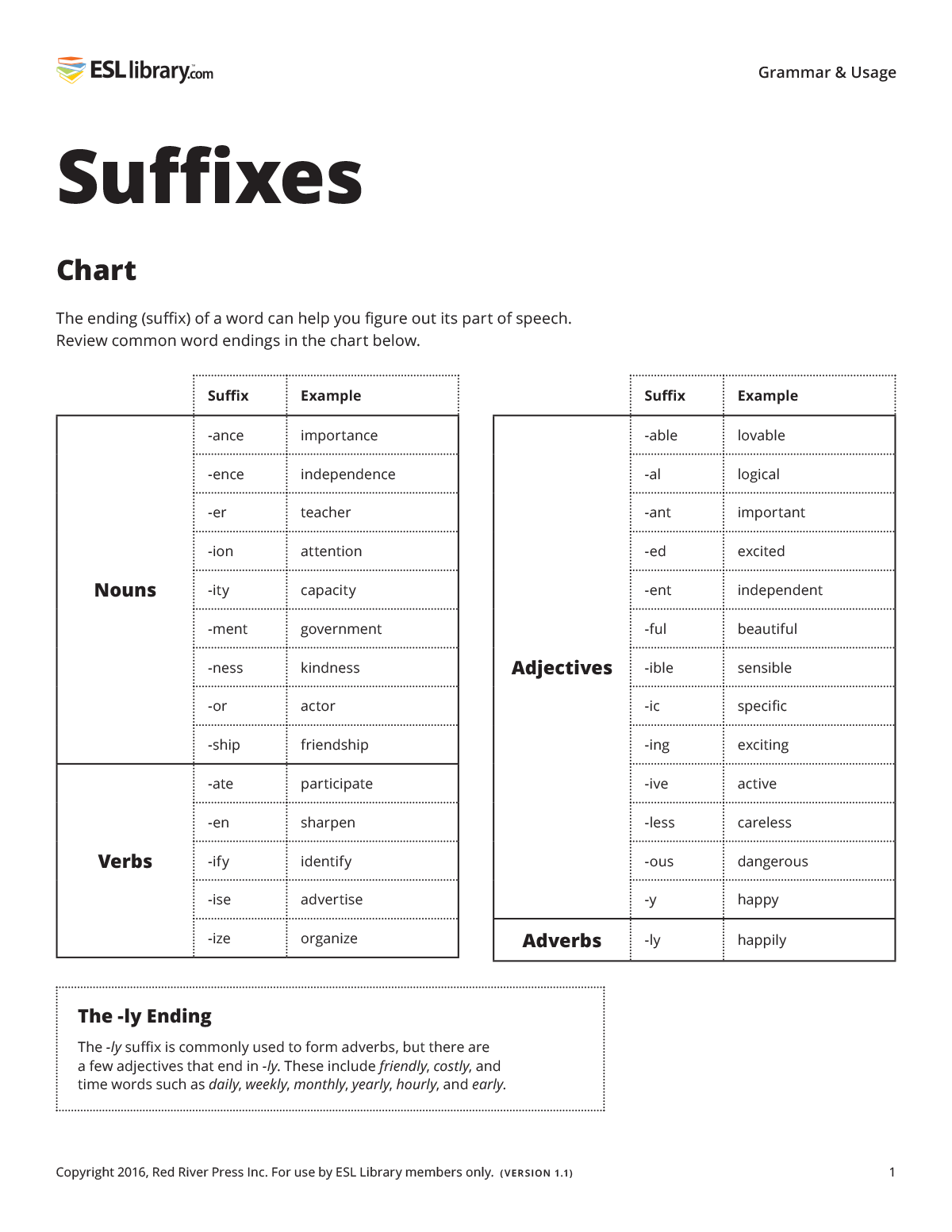English Word Endings: Suffixes That Show the Part of Speech

October 6, 2016

Share this post
Are you teaching or studying English? As you know, vocabulary can be tricky because of the difficult spelling that isn’t always related to the pronunciation of words. Grammar can also be tough to learn. Teaching language learners about word endings can help them grasp the function of a word in a sentence. Understanding suffixes helps students with spelling (one suffix can be used in many words) and grammar (one suffix has a distinct part of speech such as noun, verb, adjective, or adverb).
When you combine word endings with sentence patterns, the English language makes sense in a whole new way. Students can guess at a word’s function, and therefore sentence position, even if they don’t yet know the meaning of the word. I’ve had success teaching word endings and sentence patterns to students in low-intermediate classes all the way to advanced. It’s especially useful for students who take tests like the TOEIC. Try presenting word endings and sentence patterns to your language learners, and expect to see some Aha! moments.
Grammar & Usage Resources – Suffixes
Practice
Word Endings (Suffixes)
Review the suffixes in the chart above. Reassure students that there are not that many common endings to remember for each part of speech (adjectives is the biggest category).
You could practice by writing the endings on the board and having students brainstorm other words with those endings (as a class or in groups). You could also cut up the words in the examples column, shuffle them up, and then have students quiz each other or work together to group them back into the four parts of speech.
Try introducing some word families so students can see how useful suffixes really are! Show the examples below and see if your students can come up with others.
- import (V), importance (N), important (Adj), importantly (Adv)
- succeed (V), success (N), successful (Adj), successfully (Adv)
- organize (V), organization (N), organized (Adj)
- act (V), actor/actress/action (N), active (Adj), actively (Adv)
For more fun practice activities, see our post on Prefixes and adapt those activities to suffixes.
Note on -ly
Make sure you remind students that while -ly is usually an adverb ending, there are a few -ly adjectives (friendly, costly, daily, weekly, monthly, yearly, hourly, early). They can either memorize these exceptions or learn the adjective and adverb sentence patterns so that they know the part of speech for any -ly word.
Related Resources
Comments (3)
scrabblely (Guest)
July 3, 2017 at 12:40 pm

Tanya Trusler(Author)
July 4, 2017 at 10:54 pm
Jack (Guest)
April 24, 2018 at 8:37 am

Tanya Trusler(Author)
April 24, 2018 at 8:41 am
Deb S.(Teacher)
September 22, 2020 at 4:16 pm

Tanya Trusler(Author)
September 22, 2020 at 7:36 pm
